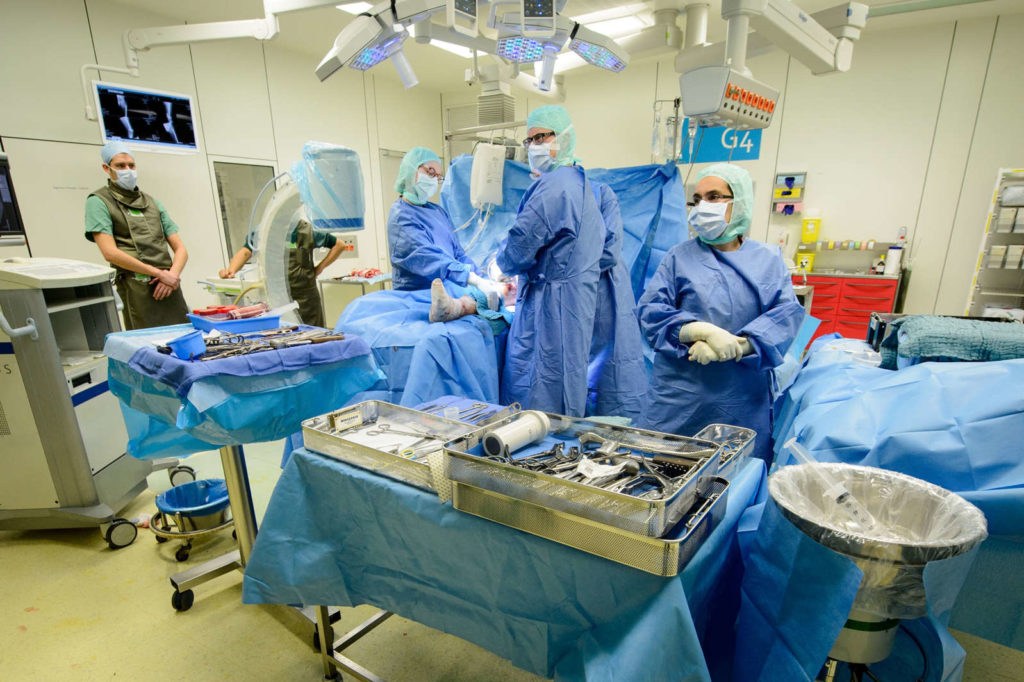As the worsening coronavirus situation in Belgium is starting to take its toll on hospitals, it has been confirmed non-urgent care will once again be postponed in certain health care institutions.
There are currently more than 1,300 hospitalised Covid-19 patients, 260 of whom require intensive care. This has resulted in all Belgian hospitals having to progressively revert to phase 1A within two weeks, meaning 25% of their ICU capacity must be reserved for Covid-19 patients.
This also means some hospitals will again have to postpone non-urgent care, according to Marcel Van der Auwera, head of the Emergency Assistance Department of the Federal Public Service Health.
"We are now seeing the effects of the relaxations that took effect at the beginning of October. So it is possible that within two to three weeks we will again need more than 500 patients to receive intensive care," Van der Auwera said.
"Once we are in phase 1A, and have to reserve more than 300 beds for Covid-19 patients, this will have an effect on non-urgent care. Hopefully, that effect will only be temporary."
Both Van der Auwera and healthcare trade unions hope the extra measures announced by the Consultative Committee on Tuesday will help in bringing down coronavirus cases and hospitalisations, however, he warned that their effect will only be seen in a few weeks' time.
Related News
- Cinemas will require Covid Safe Ticket from Friday
- Experts and politicians respond to new coronavirus measures
"That is precisely why we have warned our hospitals to prepare and scale-up," he said. This was mirrored by Jan-Piet Bauwens, national secretary of the socialist union overseeing healthcare personnel, BBTK.
"We are already seeing a number of hospitals introducing strictures on visitors and visiting hours."
The university hospital in Leuven (UZ Leuven) has announced it is one of the hospitals that will have to postpone regular care in the coming weeks, as it has seen the number of Covid-19 patients in its care almost triple in the last two weeks.
"When the government asks to scale up, it is at the expense of other care. That is very unfortunate, there is disappointment among the staff. At the moment we are still catching up with the previously postponed care."
He added that, although there is no staff shortage yet, it is clear that it is busier than before.

